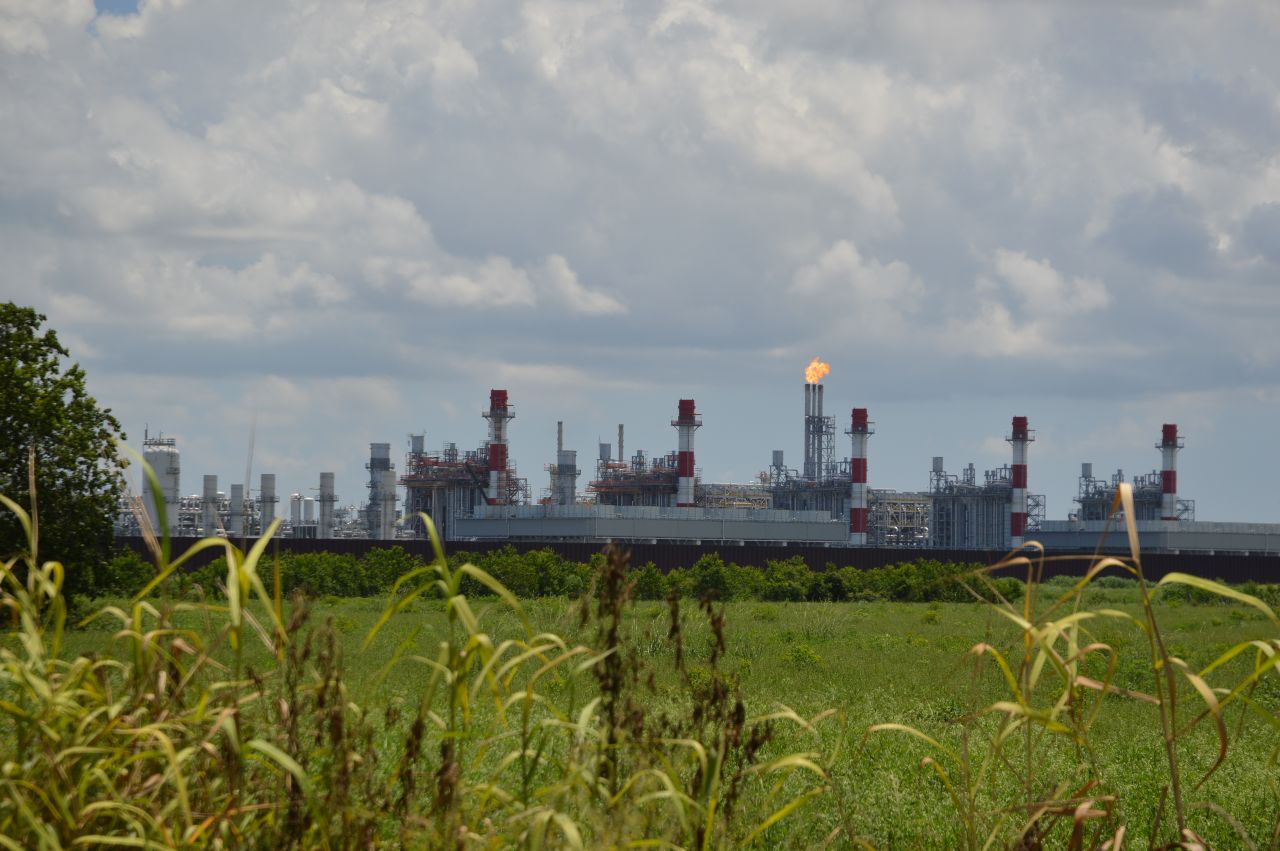Why Trump’s ‘drill, baby, drill’ policies will not reduce U.S. oil and gasoline prices

Donald Trump won a return to the White House in part by convincing American voters that he would unleash more oil and gas production, which would reduce fuel prices, curb inflation and cut grocery prices. But petroleum industry experts doubt this will work in a global market.
Even if Trump opens more federal lands and offshore areas to drilling and slashes Environmental Protection Agency regulations on methane pollution, American companies will not simply produce more petroleum and sell fuel at a lower price. This is because competing nations like Saudi Arabia could simply reduce their own production and keep global prices high for their own financial or political reasons, said Gordon Kaufman, a petroleum industry expert at the Massachusetts Institute of Technology.
“The change in administrations will have minimal to nil effect on short term or intermediate term prices [of oil and gasoline],” said Kaufman. “Oil is an internationally fungible commodity that is subject to the behaviors of multiple actors.”
Another complicating factor is that ramping up production – “drill, baby, drill!” as Trump has often promised – could create a glut of petroleum on the market, if such a trend is not counteracted by OPEC nations shifting in the opposite direction. Before any such increase in supply trickled down through the economy to benefit consumers in the form of lower fuel prices, the glut would undermine the profitability of U.S. oil and gas companies, which would remove financial incentives for these companies to invest in expanded oil exploration and drilling.
“Let’s say President Trump is successful in his efforts to increase drilling, and let’s say that increased drilling does increase global supply,” said Robert K. Kaufmann, an expert on the oil industry and climate change at Boston University, in an interview with Oil & Gas Watch News. “If that happens, oil prices are going to decline, drillers will drill less, and that will move prices back up pretty quickly.”
In a country like the U.S. where oil and gas are extracted by private corporations – not state-owned entities like in Saudi Arabia and Russia -- it’s the free market that generally determines how much oil and gas companies have an economic incentive to produce.
"Presidents can make a lot of noise about plans for U.S. oil and gas, but ultimately it's individuals and companies responding to prices of a global commodity that make the decisions on when to drill," said Jesse Jones, head of North American upstream at Energy Aspects, told Reuters news.
This contradicts claims that former President Trump repeatedly made on the campaign trail. He repeatedly asserted that increased production of what he called “liquid gold” would do everything from bringing down inflation – which has already fallen to 2.4 percent below the historical average – to lowering grocery prices and repaying the national debt.
During a rally in North Carolina on Aug. 14, Trump told the crowd: “At the center of our effort to bring the cost of living under control will be the all-out push to end the Biden-Harris war on a thing called American energy. American energy, we will drill, baby, drill. We’re going to bring energy prices down.”
During a speech in Michigan on Aug. 29, Trump went further, saying: “My goal will be to cut your energy costs in half within 12 months after taking office. We can do that.”
Most experts do not agree.
“No, absolutely not,” Cutler J. Cleveland, an expert on the oil and gas industry who is associate director of Boston University’s Institute for Global Sustainability, told Oil & Gas Watch News.
“While increasing oil and gas production might have domestic benefits – energy security benefits, jobs in certain states, and so on – it will not have any direct impact on oil prices. Oil prices are determined in an international market, with a larger number of buyers and sellers.” Cleveland said. “That one thing that history has instructed us over the years is that prices are largely and almost entirely determined by market fundamentals.”
President-elect Trump’s claim that the Biden-Harris administration has been waging a “war” on the oil and gas industry echoes rhetoric in the “Project 2025” plan that his allies in the Heritage Foundation published as a roadmap for the next four years.
But that rhetoric contradicts data from the oil and gas industry itself and the U.S. Energy Information Administration that show U.S. oil and gas production reached record-breaking levels during the Biden Administration, exceeding the amounts extracted during Trump’s term in office. The U.S. has become the world’s largest producer of oil, exceeding even Saudi Arabia and Russia.
In 2015, President Obama – with Biden as his vice president – signed a law passed by Congress that lifted a 40-year ban on the export of crude oil from the U.S., which encouraged strong growth by the industry and the construction and expansion of several oil export terminals along the Gulf Coast.
Houston-based ExxonMobil, for example, raked in a record-breaking $56 billion in profits in 2022 during the Biden Administration.
Despite all this, Trump’s allies in the Heritage Foundation portrayed the Biden Administration as hostile to the oil and gas industry. And they laid out, in their “Project 2025” agenda for the next Republican administration, several specific steps to further boost the profits of the oil and gas industry that Trump might now pursue, when he takes office on Jan. 20.
These include, according to the Project 2025 document, that the U.S. should dramatically expand oil and gas drilling on public lands, especially in Alaksa. “The region is estimated to contain 90 million barrels of oil and one-quarter of the world’s undiscovered natural gas reserves,” Project 2025 states. “The U.S. should unapologetically pursue American interests in the Arctic by promoting economic freedom in the region.”
The Biden Administration approved a massive drilling project on public lands in Alaska called the “Willow Project,” which could eventually produce 600 million barrels of oil. But the Biden Administration also restricted oil and gas leasing on 13 million acres of a federal petroleum reserve to help protect wildlife such as polar bears and caribou.
In other areas, Project 2025 also suggests the next Trump Administration should rescind many of Biden’s climate policies, slash environmental regulations, cut subsidies for clean energy, cut back on EPA’s greenhouse gas reporting program, end federal funding for carbon capture and storage, and reverse a Biden Administration pause on new LNG export terminal approvals (although that was already put on hold by a federal judge).
Among several other potentially contentious proposals that could run into opposition from even Republican lawmakers, the Project 2025 plan says that Trump should “repeal massive spending bills like the … Inflation Reduction Act, which established new programs and are providing hundreds of billions of dollars in subsidies to renewable energy developers, their investors, and special interests.”
Trump’s pick to run the Environmental Protection Agency, former New York Congressman Lee Zeldin, voted against the Inflation Reduction Act, along with most legislation meant to promote clean energy and protect the environment the U.S. House considered during Zeldin’s time in office from 2015 through 2023. Zeldin, who scored 14 percent in the League of Conservation Voters’ environmental scorecard, also voted against the , which would block energy companies from charging excessive fuel prices during emergencies.
Robert Kaufmann, the Boston University professor, noted that many clean energy projects that are set to receive billions of dollars from Biden’s Inflation Reduction Act are in Republican states, like Texas. For this reason, the local Republican members of Congress and Senators will be reluctant to kill a bill that would also eliminate many local jobs. So local politics could save Biden’s landmark achievement on the climate, Kaufmann said.
“Whatever you think of Biden, they were very smart, when they drafted the Inflation Reduction Act” Kaufmann said. “A lot of the investments in alternative energies are in red states. So are red state representatives going to vote against the interest of their constituents, and end -- for example -- battery factories that are being built in Georgia and Arizona? I don’t know about that.”
Lead photo: Then-president Donald Trump arrives to deliver remarks about American energy production during a visit to an oil rig in Midland, Texas, on July 29, 2020. (AP Photo/Evan Vucci).















